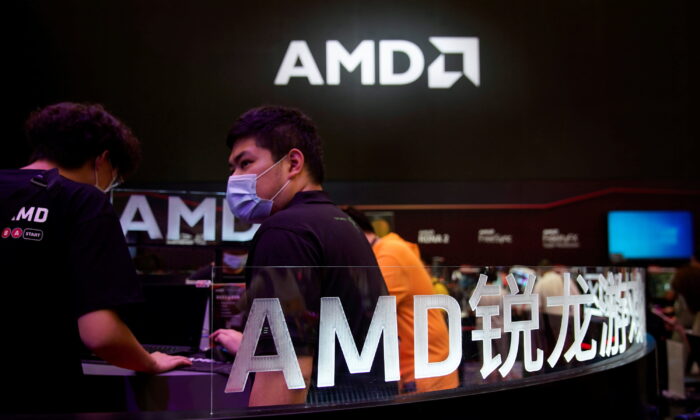The Commerce Department on Sept. 30 expanded an export rule to require foreign data centers to apply for approval before they can import American advanced computing and artificial intelligence (AI) chips, citing national security threats mainly posed by the Chinese regime.
“AI is the quintessential dual-use technology; it is in the interest of U.S. national security to work with industry and partner governments to develop a secure global technology ecosystem,” Thea D. Rozman Kendler, assistant secretary of Commerce for Export Administration, said in a statement.
While AI can expand access in areas such as education and health care, it can also be used to develop advanced cyber, chemical, biological, or nuclear weapons, according to the Commerce Department’s Bureau of Industry and Security.
The U.S. Intelligence Community has recognized that the Chinese Communist Party (CCP) intends to use “AI for mass surveillance and intelligent weapons platforms,” according to the Commerce Department.
The CCP threat has led the U.S. government to take several measures, including export restrictions, to limit the regime’s access to advanced technology.
Previously, U.S. companies were required to obtain licenses before shipping these advanced technologies to firms in India and China.
The rule update requires foreign data centers that house advanced AI centers to apply for approval as a “validated end user” (VEU) and requires U.S. exports to rely on a pre-approved list.
Data centers will have to disclose current and potential customers; business ties with any entity blacklisted by the Commerce, State, or Treasury departments or the Pentagon; and security and risk plans, including policies governing employee access.
The Bureau of Industry and Security may also require assurances from the government of the country in which the data center operates to conduct on-site reviews, require security commitments, and set reporting requirements.
Several companies in China are already on the list, having previously received approval as VEUs, including Advanced Micro Devices China, a branch of American semiconductor company AMD, and Boeing Tianjin Composites Co., Boeing’s new joint venture plant in China.
“When evaluating the eligibility of an end-user, agencies would consider the status of export controls in the eligible destination and adherence to multilateral export control regimes of the government of the eligible destination; this information, among other things, may also be the subject of government-to-government assurances,” the bureau wrote in the rule update note.
Although the bureau did not reference a specific government, U.S. lawmakers and officials have repeatedly raised issues with countries helping foreign adversaries circumvent U.S. sanctions.
U.S. diplomats have repeatedly called out China for aiding Russia’s war efforts, and lawmakers have highlighted ties between the CCP and Middle Eastern governments.
The House Committee on the CCP has called for an investigation into several Chinese firms believed to be helping sanctioned Iranian industries and into an AI firm in Abu Dhabi, United Arab Emirates, for its ties to China.


 简体中文
简体中文 繁體中文
繁體中文 English
English 日本語
日本語 ไทย
ไทย Tiếng Việt
Tiếng Việt